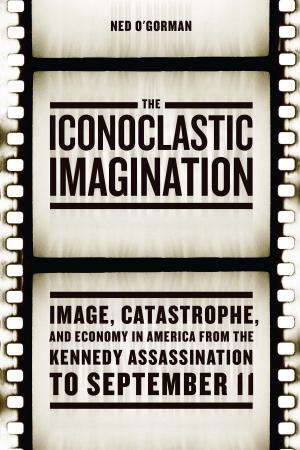Think Tanks in America
Nonfiction, Social & Cultural Studies, Political Science, Politics, Practical Politics, Government, Public Policy| Author: | Thomas Medvetz | ISBN: | 9780226517308 |
| Publisher: | University of Chicago Press | Publication: | August 9, 2012 |
| Imprint: | University of Chicago Press | Language: | English |
| Author: | Thomas Medvetz |
| ISBN: | 9780226517308 |
| Publisher: | University of Chicago Press |
| Publication: | August 9, 2012 |
| Imprint: | University of Chicago Press |
| Language: | English |
Over the past half-century, think tanks have become fixtures of American politics, supplying advice to presidents and policy makers, expert testimony on Capitol Hill, and convenient facts and figures to journalists and media specialists. But what are think tanks? Who funds them? What kind of “research” do they produce? Where does their authority come from? And how influential have they become?
In Think Tanks in America, Thomas Medvetz argues that the unsettling ambiguity of the think tank is less an accidental feature of its existence than the very key to its impact. By combining elements of more established sources of public knowledge—universities, government agencies, businesses, and the media—think tanks exert a tremendous amount of influence on the way citizens and lawmakers perceive the world, unbound by the more clearly defined roles of those other institutions. In the process, they transform the government of this country, the press, and the political role of intellectuals. Timely, succinct, and instructive, this provocative book will force us to rethink our understanding of the drivers of political debate in the United States.
Over the past half-century, think tanks have become fixtures of American politics, supplying advice to presidents and policy makers, expert testimony on Capitol Hill, and convenient facts and figures to journalists and media specialists. But what are think tanks? Who funds them? What kind of “research” do they produce? Where does their authority come from? And how influential have they become?
In Think Tanks in America, Thomas Medvetz argues that the unsettling ambiguity of the think tank is less an accidental feature of its existence than the very key to its impact. By combining elements of more established sources of public knowledge—universities, government agencies, businesses, and the media—think tanks exert a tremendous amount of influence on the way citizens and lawmakers perceive the world, unbound by the more clearly defined roles of those other institutions. In the process, they transform the government of this country, the press, and the political role of intellectuals. Timely, succinct, and instructive, this provocative book will force us to rethink our understanding of the drivers of political debate in the United States.















